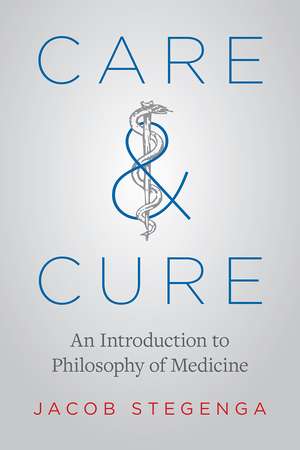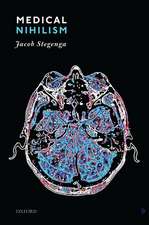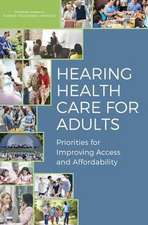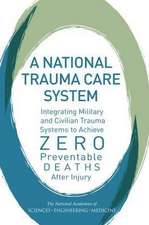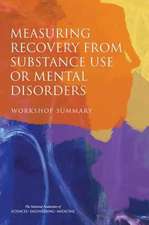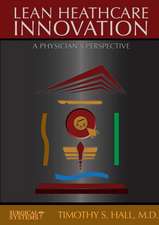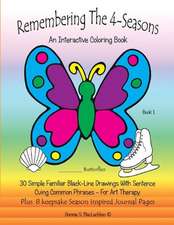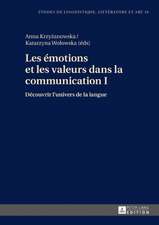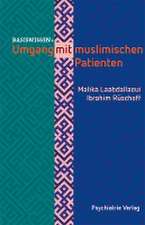Care and Cure: An Introduction to Philosophy of Medicine
Autor Jacob Stegengaen Limba Engleză Paperback – 15 noi 2018
The philosophy of medicine has become a vibrant and complex intellectual landscape, and Care and Cure is the first extended attempt to map it. In pursuing the interdependent aims of caring and curing, medicine relies on concepts, theories, inferences, and policies that are often complicated and controversial. Bringing much-needed clarity to the interplay of these diverse problems, Jacob Stegenga describes the core philosophical controversies underlying medicine in this unrivaled introduction to the field.
The fourteen chapters in Care and Cure present and discuss conceptual, metaphysical, epistemological, and political questions that arise in medicine, buttressed with lively illustrative examples ranging from debates over the true nature of disease to the effectiveness of medical interventions and homeopathy. Poised to be the standard sourcebook for anyone seeking a comprehensive overview of the canonical concepts, current state, and cutting edge of this vital field, this concise introduction will be an indispensable resource for students and scholars of medicine and philosophy.
The fourteen chapters in Care and Cure present and discuss conceptual, metaphysical, epistemological, and political questions that arise in medicine, buttressed with lively illustrative examples ranging from debates over the true nature of disease to the effectiveness of medical interventions and homeopathy. Poised to be the standard sourcebook for anyone seeking a comprehensive overview of the canonical concepts, current state, and cutting edge of this vital field, this concise introduction will be an indispensable resource for students and scholars of medicine and philosophy.
Preț: 175.50 lei
Preț vechi: 184.74 lei
-5% Nou
Puncte Express: 263
Preț estimativ în valută:
33.59€ • 34.80$ • 28.03£
33.59€ • 34.80$ • 28.03£
Carte disponibilă
Livrare economică 01-15 martie
Livrare express 15-21 februarie pentru 23.40 lei
Preluare comenzi: 021 569.72.76
Specificații
ISBN-13: 9780226595030
ISBN-10: 022659503X
Pagini: 288
Ilustrații: 2 tables
Dimensiuni: 152 x 229 x 18 mm
Greutate: 0.37 kg
Ediția:First Edition
Editura: University of Chicago Press
Colecția University of Chicago Press
ISBN-10: 022659503X
Pagini: 288
Ilustrații: 2 tables
Dimensiuni: 152 x 229 x 18 mm
Greutate: 0.37 kg
Ediția:First Edition
Editura: University of Chicago Press
Colecția University of Chicago Press
Notă biografică
Jacob Stegenga is a university lecturer in the Department of History and Philosophy of Science at the University of Cambridge. He is the author of Medical Nihilism.
Cuprins
Acknowledgments
Note to Teachers
Introduction
Part I. Concepts
Chapter 1. Health
Chapter 2. Disease
Chapter 3. Death
Part II. Models and Kinds
Chapter 4. Causation and Kinds
Chapter 5. Holism and Reductionism
Chapter 6. Controversial Diseases
Part III. Evidence and Inference
Chapter 7. Evidence in Medicine
Chapter 8. Objectivity and the Social Structure of Science
Chapter 9. Inference
Chapter 10. Effectiveness, Skepticism, and Alternatives
Chapter 11. Diagnosis and Screening
Part IV. Values and Policy
Chapter 12. Psychiatry: Care or Control?
Chapter 13. Policy
Chapter 14. Public Health
References
Index
Note to Teachers
Introduction
Part I. Concepts
Chapter 1. Health
1.1 Summary
1.2 Neutralism and Naturalism
1.3 Well-Being and Normativism
1.4 Objectivism and Subjectivism
1.2 Neutralism and Naturalism
1.3 Well-Being and Normativism
1.4 Objectivism and Subjectivism
Further Reading and Discussion Questions
Chapter 2. Disease
2.1 Summary
2.2 Naturalism
2.3 Normativism
2.4 Hybridism
2.5 Eliminativism
2.6 Phenomenology
2.2 Naturalism
2.3 Normativism
2.4 Hybridism
2.5 Eliminativism
2.6 Phenomenology
Further Reading and Discussion Questions
Chapter 3. Death
3.1 Summary
3.2 Defining Death
3.3 The Badness of Death
3.4 Ethics of Killing
Further Reading and Discussion Questions
3.2 Defining Death
3.3 The Badness of Death
3.4 Ethics of Killing
Further Reading and Discussion Questions
Part II. Models and Kinds
Chapter 4. Causation and Kinds
4.1 Summary
4.2 Three Theories of Causation
4.3 Diseases: Monocausal or Multifactorial?
4.4 Nosology
4.5 Precision Medicine
Further Reading and Discussion Questions
4.2 Three Theories of Causation
4.3 Diseases: Monocausal or Multifactorial?
4.4 Nosology
4.5 Precision Medicine
Further Reading and Discussion Questions
Chapter 5. Holism and Reductionism
5.1 Summary
5.2 Disease
5.3 Medical Interventions
5.4 Patient-Physician Relationship
Further Reading and Discussion Questions
5.2 Disease
5.3 Medical Interventions
5.4 Patient-Physician Relationship
Further Reading and Discussion Questions
Chapter 6. Controversial Diseases
6.1 Summary
6.2 Medicalization
6.3 Psychiatric Diseases
6.4 Culture-Bound Syndromes
6.5 Addiction
Further Reading and Discussion Questions
6.2 Medicalization
6.3 Psychiatric Diseases
6.4 Culture-Bound Syndromes
6.5 Addiction
Further Reading and Discussion Questions
Part III. Evidence and Inference
Chapter 7. Evidence in Medicine
7.1 Summary
7.2 Phases of Medical Research
7.3 Bias
7.4 Animal Models
7.5 Randomization
7.6 Meta-analysis
7.7 Mechanisms
Further Reading and Discussion Questions
7.2 Phases of Medical Research
7.3 Bias
7.4 Animal Models
7.5 Randomization
7.6 Meta-analysis
7.7 Mechanisms
Further Reading and Discussion Questions
Chapter 8. Objectivity and the Social Structure of Science
8.1 Summary
8.2 Industry Funding and Publication Bias
8.3 Demarcation
8.4 Value-Laden Science
8.5 Social Epistemology
8.2 Industry Funding and Publication Bias
8.3 Demarcation
8.4 Value-Laden Science
8.5 Social Epistemology
Chapter 9. Inference
9.1 Summary
9.2 Causal Inference
9.3 Extrapolation
9.4 Measuring Effectiveness
9.5 Theories of Statistical Inference
9.6 Testing Precision Medicine
Further Reading and Discussion Questions
9.2 Causal Inference
9.3 Extrapolation
9.4 Measuring Effectiveness
9.5 Theories of Statistical Inference
9.6 Testing Precision Medicine
Further Reading and Discussion Questions
Chapter 10. Effectiveness, Skepticism, and Alternatives
10.1 Summary
10.2 Defining Effectiveness
10.3 Medical Nihilism
10.4 Alternative Medicine
10.5 Placebo
Further Reading and Discussion Questions
10.2 Defining Effectiveness
10.3 Medical Nihilism
10.4 Alternative Medicine
10.5 Placebo
Further Reading and Discussion Questions
Chapter 11. Diagnosis and Screening
11.1 Summary
11.2 Diagnosis
11.3 Logic of Diagnostic Tests
11.4 Screening
Further Reading and Discussion Questions
11.2 Diagnosis
11.3 Logic of Diagnostic Tests
11.4 Screening
Further Reading and Discussion Questions
Part IV. Values and Policy
Chapter 12. Psychiatry: Care or Control?
12.1 Summary
12.2 Psychiatric Nosology
12.3 Anti-psychiatry
12.4 Delusions and Exclusions
Further Reading and Discussion Questions
12.2 Psychiatric Nosology
12.3 Anti-psychiatry
12.4 Delusions and Exclusions
Further Reading and Discussion Questions
Chapter 13. Policy
13.1 Summary
13.2 Research Priorities
13.3 Intellectual Property
13.4 Standards for Regulation
Further Reading and Discussion Questions
13.2 Research Priorities
13.3 Intellectual Property
13.4 Standards for Regulation
Further Reading and Discussion Questions
Chapter 14. Public Health
14.1 Summary
14.2 Social Epidemiology
14.3 Preventive Medicine
14.4 Health Inequalities
Further Reading and Discussion Question
14.2 Social Epidemiology
14.3 Preventive Medicine
14.4 Health Inequalities
Further Reading and Discussion Question
References
Index
Recenzii
“Care and Cure constitutes an important cornerstone. This book offers a critical yet unbiased take on timely topics written in an accessible style.”
“Researchers and practitioners will broaden their views of the virtues and limitations of pivotal elements of scientific methodology and of evidence-based medicine. Care and Cure is certainly a great contribution to the humanistic education of medical students, practitioners, and researchers.”
“Care and Cure will have wide appeal.”
“Could be an excellent supplemental text in college and medical school classes.”
“This is an exceptionally clear, accessible, and organized introduction to key concepts and central debates in the philosophy of medicine. There is as yet no single-author, comprehensive introduction to this new field. Stegenga's excellent book fills this lacuna.”
“Care and Cure cogently argues that while scholarship on ethics and the practice of medicine are in plenitude, there is a dearth of scholarship grappling with a host of other philosophical questions and issues concerning medicine as a discipline. A balanced overview.”
“As an introductory text in the philosophy of medicine, Care and Cure offers a comprehensive overview of the field which is accessible to beginners in philosophy. Notably for a philosophical book on medicine, it is not a work in medical ethics, but in applied philosophy of science. Well-written and well-structured, Stegenga’s book is a very welcome addition to the philosophy of medicine literature.”
